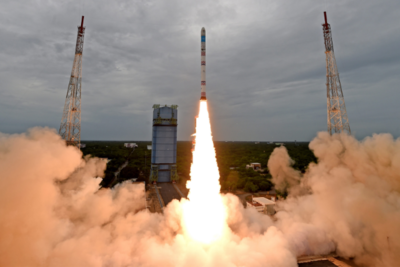
The SSLV is designed to cater specifically to the small satellite segment, aiming to provide quicker and more affordable launch solutions. This development comes at a time when small satellites are gaining prominence due to their applications in communications, Earth observation, and technology demonstrations. The SSLV’s first flight is scheduled to offer a promising glimpse into its capabilities, with ISRO positioning it as a key player in addressing the growing need for dedicated small satellite launches.
Skyroot Aerospace, a private space company, has already made significant strides with its Vikram series of rockets. Skyroot’s successful launches have established it as a prominent competitor in the small satellite launch arena. The company’s innovative approach and technological advancements have garnered considerable attention, further driving the industry’s expansion.
Agnikul Cosmos, another player in the sector, is making waves with its Agnibaan rocket, designed to offer flexible and reliable small satellite launch services. Agnikul’s approach emphasizes customization and on-demand launches, catering to a diverse range of client needs and missions. The company’s focus on precision and adaptability highlights the dynamic nature of the small satellite launch market.
This surge in the small satellite launch market is driven by several factors. The increasing number of small satellite constellations aimed at improving global connectivity and data gathering is a primary driver. Additionally, advancements in satellite technology and manufacturing have made it more feasible to deploy multiple small satellites simultaneously, enhancing the efficiency and effectiveness of space-based operations.
The entry of ISRO’s SSLV into this competitive landscape signifies a strategic move to capture a share of the expanding market. With its emphasis on reducing turnaround times and lowering costs, the SSLV is poised to address a significant market gap. The collaboration between government and private entities is expected to foster innovation and enhance the overall capabilities of the small satellite launch sector.
As the small satellite market continues to evolve, key players like ISRO, Skyroot, and Agnikul are shaping the future of space access. Their efforts are contributing to a more robust and accessible space industry, capable of meeting the diverse needs of modern satellite operators and researchers.
The growing interest and investment in small satellite technologies reflect a broader trend towards more inclusive and innovative space exploration. With ISRO’s SSLV, Skyroot’s Vikram series, and Agnikul’s Agnibaan leading the charge, the small satellite launch market is set for significant growth and advancement, promising new opportunities and capabilities in the realm of space technology.
